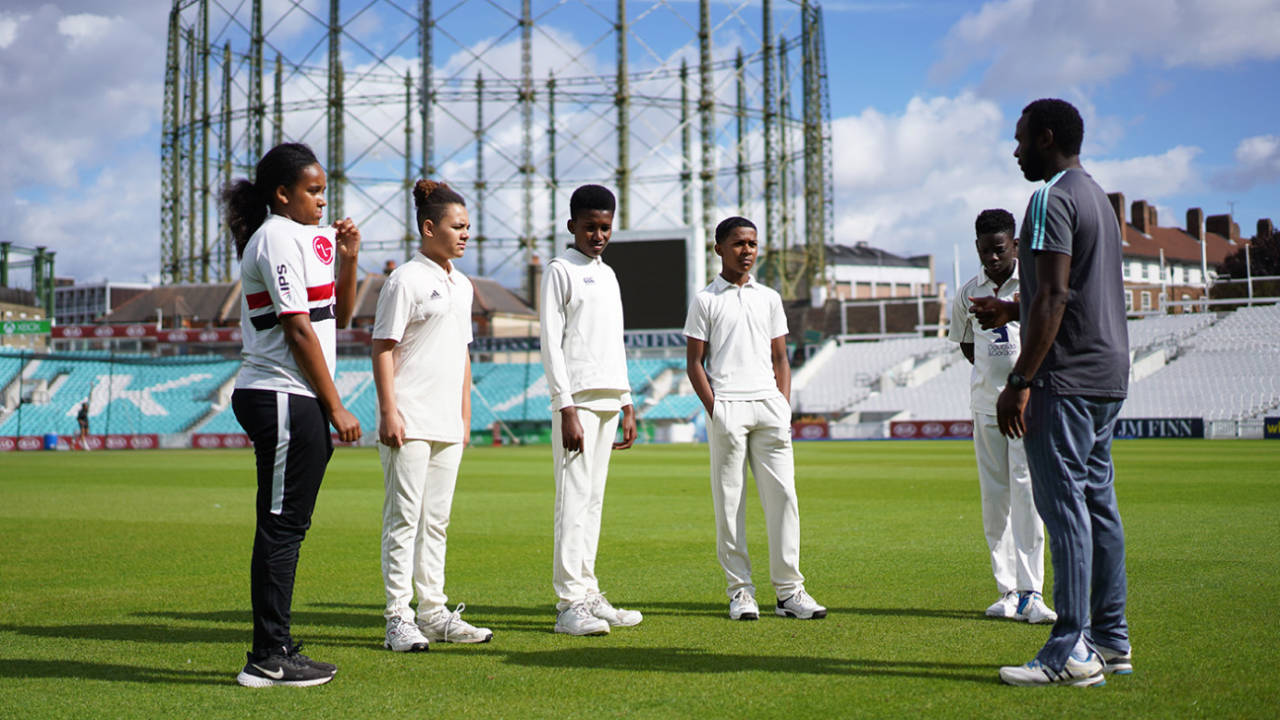The African-Caribbean Engagement (ACE) programme, the independent charity originally set up at Surrey to address a 75% decline in participation among black cricketers since 1995, has been granted ECB funding to become a nationwide project, with its impending expansion into four new regions.
ACE, which was pioneered by Surrey's director of women's cricket,
Ebony Rainford-Brent, in 2020, has since been launched in Birmingham and Bristol, and will now be rolled out in Nottingham, Manchester, Leeds and additional boroughs in north London. Its stated aim is to build grassroots cricket programmes, and develop talent pathways and talent ID systems to increase access for those from Black communities.
"This is a really significant moment for ACE," Rainford-Brent said. "Although we started small in south London, we always envisaged this programme was going to have a big national impact. To be in six cities and on both sides of the Thames in London within two years of existence proves that our model is starting to change the game.
"ACE is focused on connecting the dots to help under-represented groups from the grassroots to the elite. We know this programme will help open up new pathways to do exactly that and are excited to partner with the teams at all these different counties to have an impact.
"We're really grateful to the ECB for this meaningful support, allowing us to build on our initial backing from Sport England and start taking ACE to the next level - a truly national organisation."
Clare Connor, Managing Director of England Women's Cricket, added: "The team at ACE are doing brilliant work creating opportunities for young people from Black communities to play cricket and develop their talent.
"After their early impact in south London, Bristol and Birmingham, we are really excited to be helping ACE to increase access to cricket in more urban centres across the country. We know that targeted opportunities and support are vitally important in making cricket a game for everyone and ensuring that every young cricketer can fulfil their potential."
The ECB will also be funding a National Operations Manager role at ACE to support the delivery of the expansion plans, with an estimated 6,000 young people having already benefited from the opportunities presented through its existing community hubs, academy, elite programme, trials and schools' sessions.
In a bid to tackle the barriers to progression for cricketers from diverse backgrounds, the ECB added that work was ongoing to "develop individual plans tailored to the specific circumstances and challenges of each county". This will be informed by research undertaken by Tom Brown at Birmingham City University, with the support of the ECB, Warwickshire CCC and Essex CCC.
The expansion of the ACE programme comes as part of a wider update on the ECB's 12-point action plan to tackle discrimination within the English game, which was announced in November in response to the allegations of institutional racism at Yorkshire, and amid wider criticism of the board's handling of the issue during their appearances at the DCMS select committee hearing.
In addition, the ECB has announced immediate steps to expand its Community Talent Champion programme, with the offer of more than 3,000 bursaries to help more those from underrepresented groups to become cricket coaches or develop their skills, and the provision of £1 million of financial support for young people in the talent pathway.
Other key areas of the action plan include a thorough review of dressing room culture, for which EY Lane4 - an organisation founded by Olympic gold medallist Adrian Moorhouse - has been appointed to oversee a process that will run across the 2022 season, for the full men's and women's professional game, with findings and recommendations to be reported in September.

